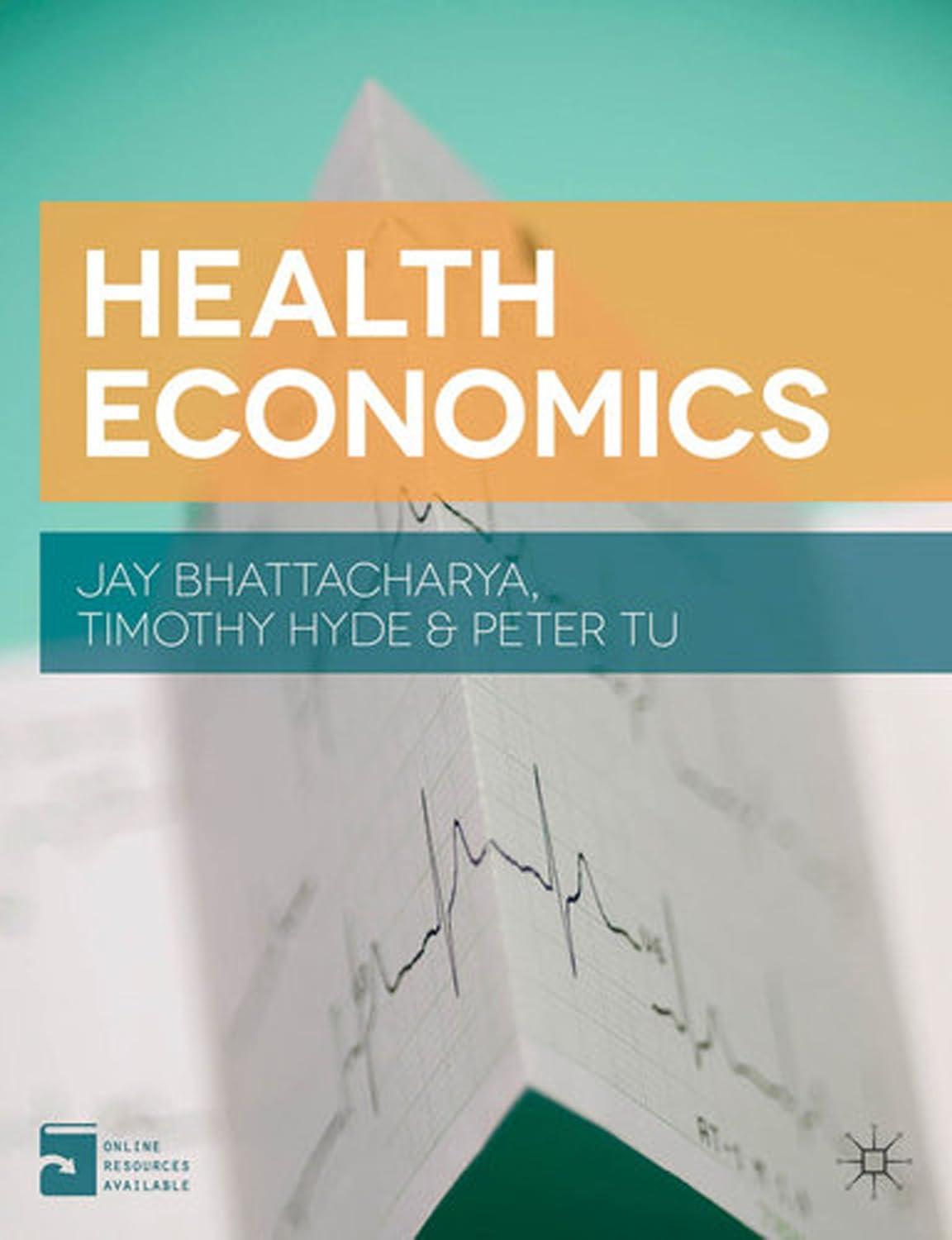Consider a patient (lets call her A) with end-stage renal disease, who has been on the waiting
Question:
Consider a patient (let’s call her A) with end-stage renal disease, who has been on the waiting list for a kidney for several years. She has no family members with kidneys that are immunological matches, so she is waiting for a kidney from an organ donor.
Getting a new kidney would considerably improve A’s life, so she is willing to pay a considerable sum – $x – to get a replacement kidney.
Consider another patient (let’s call him B) who has just died in a motorcycle accident and who has a kidney that is an immunological match for A. When B was alive, he was an altruistic sort of person – in case of his death, he had wanted his organs to go to someone like A (though A and B never knew each other). He expressed his wishes by putting an official sticker, which cost him $0, on his driver’s license saying he was an organ donor. He was so altruistic, though, that he would have been willing to pay y for this sticker, where y < x. Consider, finally, B’s family who (all else equal) would rather bury B with all his organs intact than without them. As a group, they derive $z of utility from burying B with all of his organs intact, even after taking into account B’s preferences (where y < z < x). Assume that the law is ambiguous but that in practice B’s family gets to decide what happens to B’s body. These are the only interested parties in this story.
a. Describe the socially optimal outcome. That is, what ought to happen with the kidney? Is this a feasible outcome given the laws that regulate organ donation in the US?
b. Suppose the laws were changed so that B’s family no longer decides what happens to B’s body. Instead, all organs are harvested from deceased people by default.
(This is analogous to assigning the property rights to B’s organs to A and is reflective of current organ donation laws in Spain.) Would the socially optimal outcome happen? Explain your answer (briefly).
c. Suppose instead that the law is changed so that again B’s family has the right to determine what happens to his body, but B’s family can negotiate with A (including, perhaps, a monetary settlement) about B’s organs. Would the socially optimal outcome happen? Explain your answer (briefly).
d. Who has the property rights to B’s organs under current law? (You may expand beyond A, B, and B’s family in your answer, if necessary.)
e. Based on your answers to the previous exercises, does the Coase theorem apply in this setting?
Step by Step Answer:






